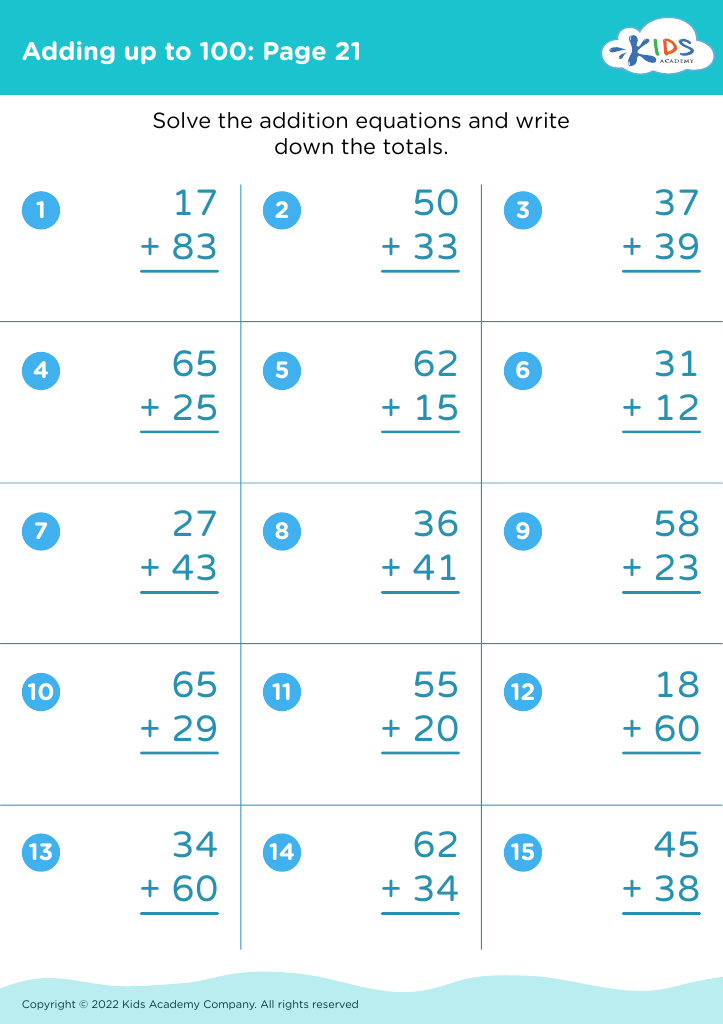Enhancing problem-solving abilities Adding up to 100 Worksheets for Ages 6-7
3 filtered results
-
From - To
Welcome to our dedicated resource for enhancing problem-solving abilities in children aged 6 to 7! Our "Adding Up to 100 Worksheets" are specifically designed to engage young learners and build foundational math skills through fun, interactive activities. By combining visual aids, practical exercises, and intriguing challenges, these worksheets encourage critical thinking and improve cognitive development. Each worksheet progressively guides children in mastering addition concepts, fostering confidence and competence in solving diverse math problems. Ideal for both classroom and home learning, our materials offer an effective way to nurture a love for math and empower children on their educational journey. Start inspiring curiosity today!
Enhancing problem-solving abilities in children aged 6-7, particularly in math skills like adding up to 100, is crucial for several reasons. At this developmental stage, children's cognitive skills are rapidly evolving, and fostering critical thinking helps lay the groundwork for future academic success. Strong problem-solving abilities instill confidence in students, allowing them to approach challenges without hesitation and build resilience in the face of mistakes.
Moreover, learning to solve addition problems up to 100 equips children with essential life skills. These foundational math skills promote logical reasoning, enabling kids to approach complex situations in both academic and everyday contexts. For instance, interacting with money, managing time, or organizing tasks becomes easier with a solid numeric understanding.
Engaging in problem-solving activities also encourages collaboration. When children work jointly to solve math problems, they develop communication skills and learn the value of diverse perspectives. Teachers and parents play a pivotal role in nurturing this skill—by incorporating playful exercises and real-life applications, they can create an enriching environment that develops children's confidence, resilience, and social skills while reducing math anxiety. Ultimately, these problem-solving abilities form a key part of a child’s toolkit for lifelong learning and success.









%20(1).jpg)












